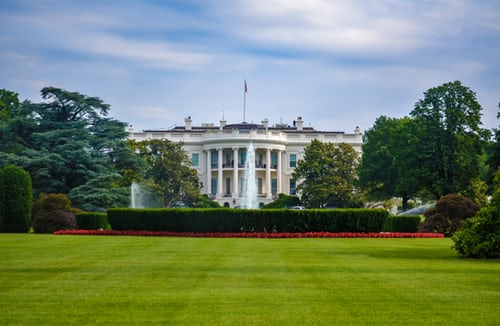The Senate’s Role
As we approach the time that the House is finalizing its work and potentially voting to send the impeachment case to the Senate it’s time to take a look at what the Senate’s part is in all of this.
In essence, the Senate’s job is to have a trial where all 100 Senators sit as jurors deciding the impeached (it only comes to the Senate if the House votes by a majority to impeach) office holder’s fate and, as noted in Part I of these blogs, it would take 2/3 of the Senate (a supermajority) to convict and remove the office holder. Procedurally, Article I, Section5, Clause 2 of the Constitution indicates that “[e]ach House may determine the Rules of its Proceedings, punish its Members for disorderly Behavior, and, with the Concurrence of two thirds, expel a Member.” Thus, voting requirements for expulsion of legislative members is the same as the voting requirements for removal of Executive and Judicial offenders, 2/3. What is most interesting about this Clause is the indication that the House and the Senate are both responsible for making their own rules for how they operate. This is relevant to the current conversation because it makes clear that while there are particular protections in the Constitution such as the right to an attorney, the right to a jury trial, etc., which act as a limitation on the powers of our government, those protections are not in place when it comes to how the House or the Senate decide to investigate and hold their members accountable for their actions, or by extension, how they conduct their responsibilities concerning each legislative body’s process in impeachment/removal. In this regard, it is clear that the normal rules applying to courts of law in the United States, and the protections afforded by the Constitution, do not apply to Congress when it is making its own rules concerning how it proceeds in its sessions. Thus, when either chamber is engaging in its Constitutional duty of impeachment/removal, the normal protections afforded criminal defendants in a court of law under the Constitution are dependent upon each Chamber’s rules. Thus, how the House impeaches an office holder or the Senate holds a trial and convicts and removes, or acquits, the office holder, they each make their own rules with regard to how they proceed in performing their Constitutional duties.
Who Can be Impeached and For What Reasons?
Article II, Section 4 of the Constitution indicates that “[t]he President, Vice President and all civil Officers of the United States, shall be removed from Office on Impeachment for, and Conviction of, Treason, Bribery, or other high Crimes and Misdemeanors.” Article III, Section 3, Clause 1 indicates that “Treason against the United States, shall consist only in levying War against them, or in adhering to their Enemies, giving them Aid and Comfort. No person shall be convicted of Treason unless on the Testimony of two Witnesses to the same overt Act, or on Confession in open Court.” As you can see, the Constitution is very specific with regard to what constitutes the act of treason, but is silent on what constitutes bribery and High Crimes and Misdemeanors.
Bribery
Let’s start with bribery because High Crimes and Misdemeanors requires its own blog. The easiest way to understand what is involved in the crime of bribery is go directly to the United States Code (the laws made by Congress and signed by the President). 18 U.S.C. (United States Code) section 201 defines the crime of bribery of public officials and witnesses. There are four ways to commit the crime, but only subsection (2) is relevant for our conversation and it states that:
“(2) being a public official or person selected to be a public official, directly or indirectly, corruptly demands, seeks, receives, accepts, or agrees to receive or accept anything of value personally or for any other person or entity, in return for:
(A) being influenced in the performance of any official act;
(B) being influenced to commit or aid in committing, or to collude in, or allow, any fraud, or make opportunity for the commission of any fraud, on the United States; or
(C) being induced to do or omit to do any act in violation of the official duty of such official or person;”
One of the interesting aspects of bribery is the fact that the offending public official does not have to directly and personally solicit or offer a bribe, they can do so through another person and thus indirectly. Additionally, the act of bribery does not have to be completed for the crime itself to be completed. A public official merely needs to agree to receive or accept something of value for themselves or on behalf of another person, or even an entity such as a corporation. Furthermore, the thing of value does not have to have a monetary value. It merely has to be something of value to the office holder, which the office holder is exchanging for the doing of an official act or duty, i.e. something only they can do and only because of the fact they are holding public office. So in summary, there are multiple ways to commit the offense and you have to look at each fact pattern individually to determine which method of commission applies, but what’s important is the act doesn’t have to be completed and the thing of value can be on behalf of others, and not solely, personally for the office holder.
High Crimes & Misdemeanors
The most confusing terminology in the Constitution is its reference to “High Crimes and Misdemeanors.” There is nothing in the criminal code that is referenced as a high crime or a high misdemeanor. Crimes are categorized, generally, into felonies (the worst crimes), misdemeanors (lower level crimes) and petty offenses (minor crimes that generally do not involve jail). So in order to understand what the Framers of the Constitution meant by this term we have to look to history. In the final installment, Part III, we will be examining the history of High Crimes and Misdemeanors and giving examples from United States history of reasons for impeachment of public officials.

